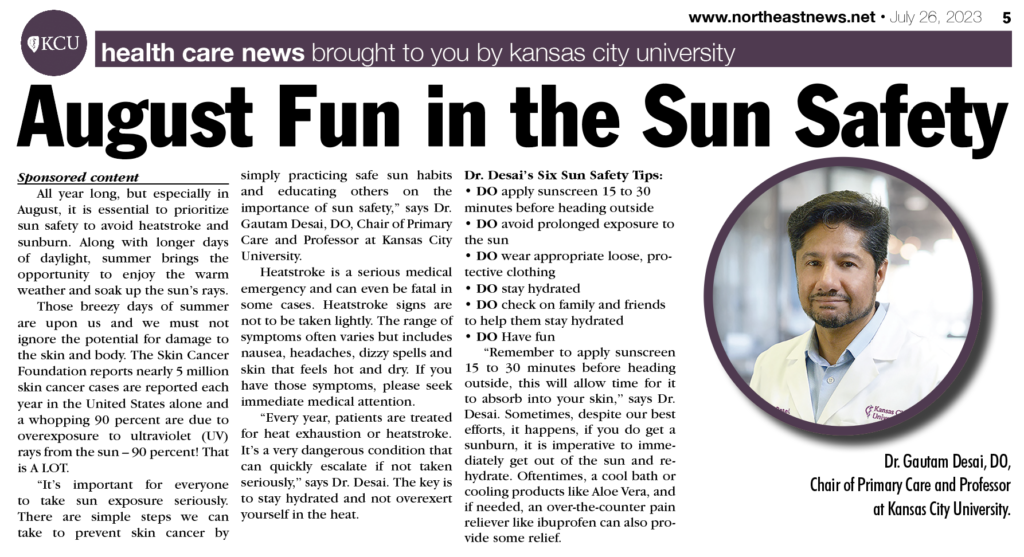
Sponsored content
All year long, but especially in August, it is essential to prioritize sun safety to avoid heatstroke and sunburn. Along with longer days of daylight, summer brings the opportunity to enjoy the warm weather and soak up the sun’s rays.
Those breezy days of summer are upon us and we must not ignore the potential for damage to the skin and body. The Skin Cancer Foundation reports nearly 5 million skin cancer cases are reported each year in the United States alone and a whopping 90 percent are due to overexposure to ultraviolet (UV) rays from the sun – 90 percent! That is A LOT.
“It’s important for everyone to take sun exposure seriously. There are simple steps we can take to prevent skin cancer by simply practicing safe sun habits and educating others on the importance of sun safety,” says Dr. Gautam Desai, DO, Chair of Primary Care and Professor at Kansas City University.
Heatstroke is a serious medical emergency and can even be fatal in some cases. Heatstroke signs are not to be taken lightly. The range of symptoms often varies but includes nausea, headaches, dizzy spells and skin that feels hot and dry. If you have those symptoms, please seek immediate medical attention.
“Every year, patients are treated for heat exhaustion or heatstroke. It’s a very dangerous condition that can quickly escalate if not taken seriously,” says Dr. Desai. The key is to stay hydrated and not overexert yourself in the heat.
Dr. Desai’s Six Sun Safety Tips:
• DO apply sunscreen 15 to 30 minutes before heading outside
• DO avoid prolonged exposure to the sun
• DO wear appropriate loose, protective clothing
• DO stay hydrated
• DO check on family and friends to help them stay hydrated
• DO Have fun
“Remember to apply sunscreen 15 to 30 minutes before heading outside, this will allow time for it to absorb into your skin,” says Dr. Desai. Sometimes, despite our best efforts, it happens, if you do get a sunburn, it is imperative to immediately get out of the sun and rehydrate. Oftentimes, a cool bath or cooling products like Aloe Vera, and if needed, an over-the-counter pain reliever like ibuprofen can also provide some relief.


















